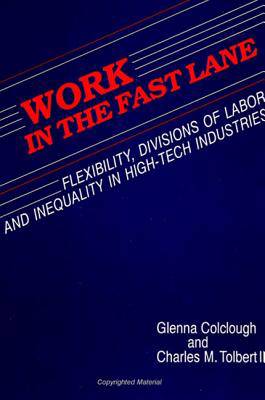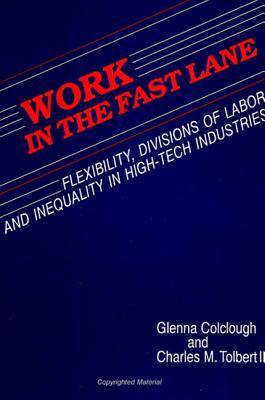
- Retrait gratuit dans votre magasin Club
- 7.000.000 titres dans notre catalogue
- Payer en toute sécurité
- Toujours un magasin près de chez vous
- Retrait gratuit dans votre magasin Club
- 7.000.0000 titres dans notre catalogue
- Payer en toute sécurité
- Toujours un magasin près de chez vous
Work in the Fast Lane
Flexibility, Divisions of Labor, and Inequality in High-Tech Industries
Glenna Colclough, Charles M Tolbert IIDescription
Arguing that a new form of industrial organization is generating new patterns of inequality, the authors explore the relationship between growth in the high-tech sector and trends in inequality. While considering the promise of high-tech industries in light of the realities of high-tech work, the authors report considerable unevenness in the high-tech sector. Some high-tech industries fulfill optimistic expectations, but others are in decline. In some high-tech industries, work is organized in ways that generate inequality along gender, racial, and ethnic lines.
The authors link these contrasts to different strategies of flexible production. Building upon the distinction between static flexibility, in which harsh measures are taken to control costs, and dynamic flexibility, in which production processes are constantly adapted to market conditions, they conclude that the most innovative and successful high-tech industries are those employing dynamic flexibility. Expansion of dynamically flexible production strategies is essential if high-tech industries are to fulfill their promise.
Spécifications
Parties prenantes
- Auteur(s) :
- Editeur:
Contenu
- Nombre de pages :
- 160
- Langue:
- Anglais
- Collection :
Caractéristiques
- EAN:
- 9780791407837
- Date de parution :
- 17-01-92
- Format:
- Livre relié
- Format numérique:
- Genaaid
- Poids :
- 408 g

Les avis
Nous publions uniquement les avis qui respectent les conditions requises. Consultez nos conditions pour les avis.






